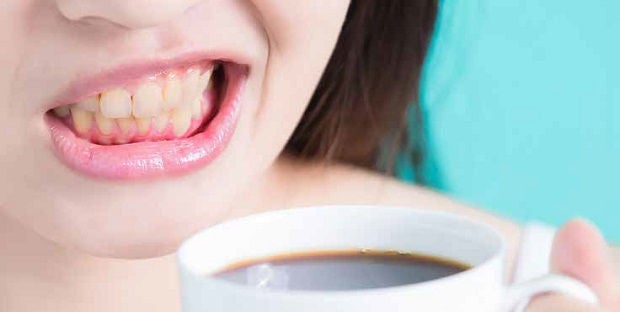
Here are some helpful tips on healthy eating to protect your dental health.
We know that poor oral hygiene can lead to gum diseases and dental cavities, but did you know that the food you choose and how often you eat them also have a significant impact on your teeth and oral health?
Dr Amelia Anya Chew Qin’an (below), Consultant, Department of Restorative Dentistry, Prosthodontic Unit, National Dental Centre Singapore (NDCS), sheds light on the relationship between food and the health of your teeth.

How do acidic drinks like carbonated beverages and lemon-infused water affect our teeth?
Erosion happens when the acid from the lemon and carbonated drinks come into contact with the enamel, which is the outer surface of the teeth. Once the enamel is eroded, the surface can get worn down. When these drinks are consumed excessively, the underlying structure gets exposed and that can lead to problems such as tooth decay. Sugar content in soft drinks can also cause tooth decay and cavities.
Does this mean we should avoid carbonated drinks?
We advise patients to drink carbonated beverages in moderation or to avoid drinking over long periods, such as sipping it throughout the day. Rinsing your mouth after consuming these drinks can help wash away any remaining sugars and acid content, preventing further erosion of the enamel.
Similarly, if you consume citrus fruits like oranges and lemons, gargle first to remove the acid content before brushing your teeth. Brushing your teeth immediately after consuming these fruits and drinks is not advisable as this will smear the acid content all over your teeth and can cause quicker deterioration. It is best to wait at least 30 minutes to one hour before brushing.
Is sugar really bad for your teeth?
Sugar has a direct correlation with tooth decay. When you consume food that contains sugar, these sugar molecules combine with the saliva and bacteria present in the mouth to form plaque on the teeth. Left on the teeth, plaque can demineralise the enamel (essential minerals removed from the hard, protective layer of tooth enamel), which can lead to cavities and tooth decay.
Does eating more fruits and vegetables improve dental health?
Fruits and vegetables, especially those that are fibrous, can help clean plaque from the teeth. Many fruits and vegetables also contain lots of vitamin C that may help strengthen the gums.
What causes your teeth to stain?
Extrinsic staining occurs on the surface and is mainly due to food consumption habits or smoking. This can be caused by frequent drinking of coffee, tea or wine. Intrinsic stains are those that affect the inner layer of the teeth, and may be due to a genetic condition or caused by certain medication. It is also associated with ageing — when the enamel thins with age, teeth can turn yellow.
Does drinking these beverages with a straw prevent staining?
There is limited evidence to suggest that drinking with a straw helps prevent extrinsic staining. The key is to prevent the colouring from having prolonged contact with your teeth. Rinse your mouth with water immediately after drinking coffee or tea so that the stains do not form. You should also consume these beverages in moderation.
Are hard foods bad for your teeth?
We do see a trend of patients consuming hard foods, such as nuts and apples, having a higher risk of tooth fracture. If you have a habit of biting into even harder foods like bones and sugar cane, your teeth will be more prone to cracks and chips.
Does consuming alcohol affect one’s dental health?
Prolonged consumption of alcohol wears down the enamel. There is also a large body of evidence to show that alcohol consumption is a major risk factor for oral cancer. Alcohol use may also affect the psychological health of patients, putting them at greater risk of dental trauma, such as when they fall or get into accidents.
Wisdom teeth, is there a “best” time to get them removed? The answer here.What kind of food can help keep teeth and gums clean?
Ideally, one should take fibrous food and vegetables, and food that is low in sugar content. Consume soft drinks and citrus foods in moderation. To keep teeth and gums healthy, it is also important to ensure good maintenance, such as regular brushing and interdental cleaning, as well as frequent visits to the dentist.
Get the latest updates about Singapore Health in your mailbox! Click here to subscribe.













 Get it on Google Play
Get it on Google Play